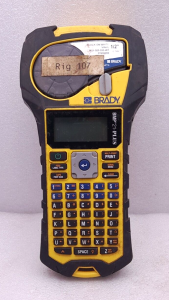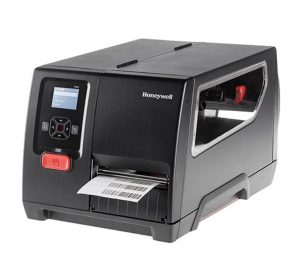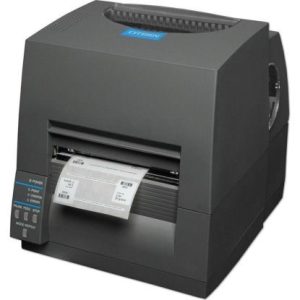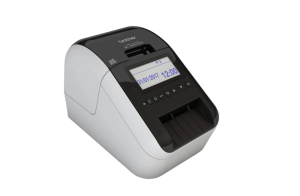Blog on RFID Technology and IoT Solutions
Blog Home

How to Choose the Best Printer for Barcode Label in Singapore
03 January 2024What is Barcode Label Printers?
Barcode label printers are specialized devices designed to print barcode labels for various applications in businesses and industries. These printers play a crucial role in creating labels that contain unique barcodes, which are then attached to products, packages, or assets for identification and tracking purposes. The primary function of barcode label printers is to generate machine-readable codes that can be scanned by barcode scanners.
How Much Does a Barcode label Printer Cost?
Barcode label printers come in various types, and the cost of each equipment is influenced by specific requirements. Several factors contribute to the pricing of a barcode printer:
Accessories: The inclusion of additional accessories or features, such as label dispensers or cutters, can impact the overall cost of the barcode printer.
Connectivity: The type of connectivity options, including USB, Ethernet, or wireless capabilities, can influence the price based on the desired integration with other systems.
Maintenance Costs: Consideration of ongoing maintenance costs, including replacement parts and service fees, is crucial when evaluating the total cost of ownership.
Quality: The build quality and durability of the barcode printer affect its price. Industrial-grade printers designed for harsh environments may come at a higher cost than desktop models.
Speed: The printing speed of the barcode printer can impact its cost. Higher-speed printers designed for high-volume applications may be priced differently compared to lower-speed models.
Barcode label printers come in various types, each designed to meet specific needs and printing requirements. Here are some common types of barcode label printers:
Types Of Barcodes Label Printers
1. Desktop Barcode Printers:
Description: Compact and suitable for lower printing volumes. Ideal for small businesses, retail, or offices.
Use Cases: Basic labelling, asset tracking, and small-scale retail applications.
Features: Cost-effective, space-saving, and easy to use.
2. Industrial Barcode Printers:
Description: Robust and durable, designed for high-volume and continuous printing in industrial settings.
Use Cases: Warehousing, manufacturing, distribution centres, and applications requiring heavy-duty printing.
Features: Sturdy construction, high-speed printing, and often equipped with advanced features.
3. Mobile Barcode Printers:
Description: Portable printers that allow on-the-go printing using mobile devices.
Use Cases: Field services, inventory management, and applications requiring mobility.
Features: Compact, lightweight, and wireless connectivity.
4. Thermal Barcode Printers:
Description: Use thermal printing technology, either direct thermal or thermal transfer, for producing labels.
Use Cases: Commonly used in retail, shipping, and manufacturing for generating high-quality, durable labels.
Features: Fast printing, low maintenance, and suitable for various label materials.
5. Inkjet Barcode Printers:
Description: Utilize inkjet printing technology to produce barcode labels.
Use Cases: Colour labelling, product packaging, and applications requiring high-resolution printing.
Features: Colour printing capabilities, suitable for high-quality graphics.
6. Laser Barcode Printers:
Description: Use laser technology for printing, like office laser printers.
Use Cases: Small-scale barcode label printing in office environments.
Features: High-quality printing, suitable for lower volume applications.
7. RFID Barcode Printers:
Description: Incorporate Radio-Frequency Identification RFID technology for encoding information in addition to barcodes.
Use Cases: Advanced tracking and identification applications.
Features: Dual functionality for printing barcodes and encoding RFID tags.
8. Colour Barcode Printers:
Description: Specifically designed for printing colour labels, including color-coded barcodes.
Use Cases: Product labelling, inventory management with color-coded categories.
Features: Colour printing capabilities, suitable for enhancing visual identification.
While specific preferences may vary based on individual needs, the following list includes some of the best barcode label printers available in the market:
Below are some of the best barcode Labels printers you can find in the market.
Zebra GX430T
Features: Compact design, thermal transfer printing, high-resolution output, suitable for various industries.
Use Cases: Manufacturing, retail, healthcare.

DYMO Label Writer 4XL
Features: Direct thermal printing, wide-format label printing, easy-to-use, compatible with popular shipping platforms.
Use Cases: Shipping labels, warehouse management.


Brady BMP21-PLUS
Features: Portable, durable design, easy-to-use interface, variety of label materials.
Use Cases: General labelling, wire marking, industrial environments.


Honeywell PM42
Features: Industrial-grade, fast printing, durable construction, colour touch screen.
Use Cases: Warehousing, manufacturing, distribution.


Epson Colour Works C3500
Features: Colour inkjet printing, high resolution, versatile media handling.
Use Cases: Color-coded labelling, product packaging.


TSC TA210
Features: Compact, affordable, easy to operate, suitable for small businesses.
Use Cases: Retail, small-scale labelling.


SATO CL4NX
Features: Industrial-grade, versatile connectivity options, RFID capabilities.
Use Cases: Manufacturing, logistics, retail.


Citizen CL-S621
Features: Thermal transfer printing, compact design, user-friendly.
Use Cases: Retail, shipping, logistics.


Zebra ZD620
Features: Advanced printing technology, easy to manage, variety of connectivity options.
Use Cases: Manufacturing, healthcare, retail.


Brother QL-820NWB.
Features: Compact, wireless connectivity, easy setup, mobile printing capabilities.
Use Cases: Office, shipping labels, retail.


In conclusion, barcode label printers are indispensable assets for any business, greatly enhancing efficiency and workflow. Before making a purchase from the options, it is advisable to consult with an expert from a trusted supplier. This ensures that you choose the best-suited barcode label printer for your business needs. Additionally, consider factors such as size, functionality, and mobility to optimize business operations and prioritize sales initiatives.
search
sort by
category
- All
- Cold chain monitoring
- Intelligent Transportation Systems
- IoT
- IoT in agriculture
- IoT solutions
- RFID
- RFID for 3PL Providers
- RFID for Inventory Tracking
- RFID for Personal Tracking
- RFID For Vehicle Tracking
- RFID in Laboratory Inventory Management
- RFID label tag
- RFID solutions
- RFID Solutions in Construction
- RFID System
- RFID Tags for Asset Tracking
- RFID Technology
- RFID Technology in Food Industry
- RTLS Technology
- Track&Trace solutions
- Uncategorized
- Intellistride.com
- Blog
- How to Choose the Best Printer for Barcode Label in…